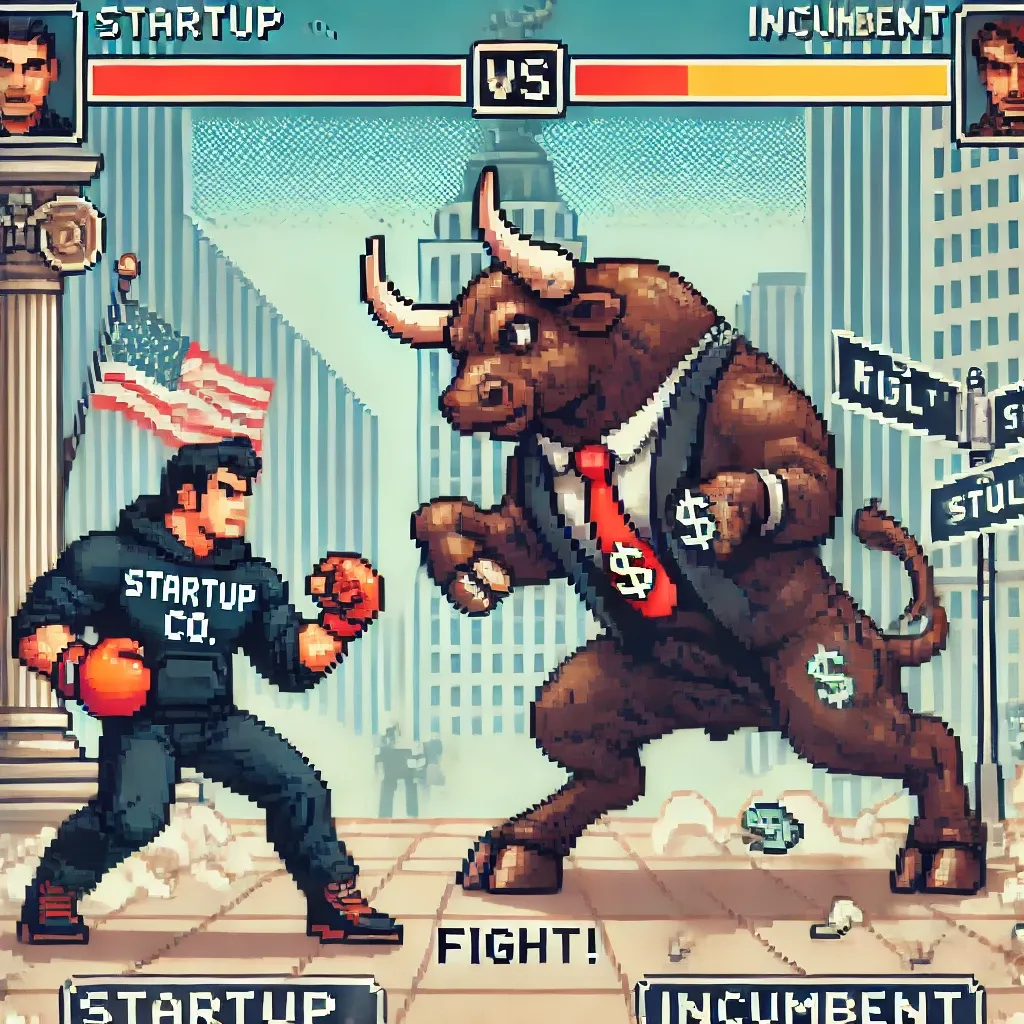The AI Data Moat

Technology revolutions usually favour competent incumbents. Contrarian, I know. But honestly, the Kodak, Nokia and Blockbuster stories are the exceptions. They're great stories because they are the exceptions. More often than not most large companies take a wait and see approach. Then slowly adopt proven technologies with clear business use cases to do so. These stories aren't notable because it feels like these companies were dragging their feet.
On the flip side, countless startups are born and die in the hype cycle of a new technology. The dotcom bubble, cryptocurrencies, 3D printing, virtual reality and clean tech were fueled by hope and optimism. Each brittle company failing in a rising tide of financial uncertainty. The survivors are the ones to prove the vision of the technology and slowly erode incumbent market share.
Slowly, because companies powered by new technology often compete indirectly at first. They operate in a niche, or create a completely new market that supplants the old one. Who did Google and all the other internet search companies compete with? Libraries? Indexing websites was new. Organising information is old. How about Kmart, they have an online store now, but they no doubt have had some market share eroded by Amazon.
This is a story as old as time. Can the agile David beat ginormous Goliath? Can the old system update to incorporate new technologies? Or does it need to be rebuilt?
What's different this time?
This time the incumbents have a data moat to build upon and they aren't waiting
In a traditional Startup vs Incumbent competition the startup makes a bet on new technology. This is a risk for the incumbent and so the startup has room to win a small but fast growing market. The growth of that market combined with the new value added by new technology can displace the incumbent. The incumbent gets left behind when they can't adopt a proven technology quick enough to compete.
This time, incumbents see AI as important for their survival. They are not waiting.
Let's do a little thought experiment. Through the years 2006, 2009, 2024.
In 2006, you think its crazy that you can't see home listings on the internet.
In 2009, you think its crazy that you can't see home listings on your phone.
In 2024, you think its crazy that you can't use an LLM to find your ideal home.
In 2006, you quit your job at Microsoft, found Zillow and win the market, creating new value by organizing information.
In 2009, you quit your job, build an listings App, and get outcompeted by Zillow when they launch theirs a few months later.
In 2024, you quit your job, build an Property Listings AI, and lose to Zillow who already has the data.
The old stereotype of being slow and risk-averse is less true for generative AI.
Why didn't that work?
In 2006, Zillow did something valuable by aggregating disparate information and making it accessible. In 2009 & 2024 a change in UX with a marginal cost of replication is not differentiated enough to succeed. Zillow and other incumbents in that market already have the data and audience. Despite their sometimes glacial pace, incumbents will often win in these markets.
Data moats are a strong competitive advantage. Fine tuned models, even RAG performs much better with a large volume of high quality data. Competing on 'prompt engineering' is not going to win against a prepared incumbent. You think your biggest competitor can't write a few good prompts?
The caveat is, can the incumbent break down data silos to make this data useful?
Successful companies succeed by creating value for their customers. Even if a new UX is a compelling market advantage, if the technology is not hard to reproduce the incumbent Data moat will be a far larger advantage.
What will work?
Each technological revolution has a core tenant of the kind of value it enables. Computation offloaded tedious white collar work. The internet powered transformations in information and coordination/collaboration. Mobile made computation and information accessible wherever we are, making it more real-time.
AI will likely enable process automation, a thing all big businesses can benefit from. Which is why they are investing so heavily into it.
Startups don’t win by playing the incumbents' game. They win by creating a new value. In this AI revolution, the key is to go where the data isn’t. That means solving problems incumbents aren't paying attention to, targeting underserved markets, or creating entirely new categories of value. Selling pickaxes anyone?
I'm keeping my eye on robotics, agentic process automation and vertically integrated AI products.
